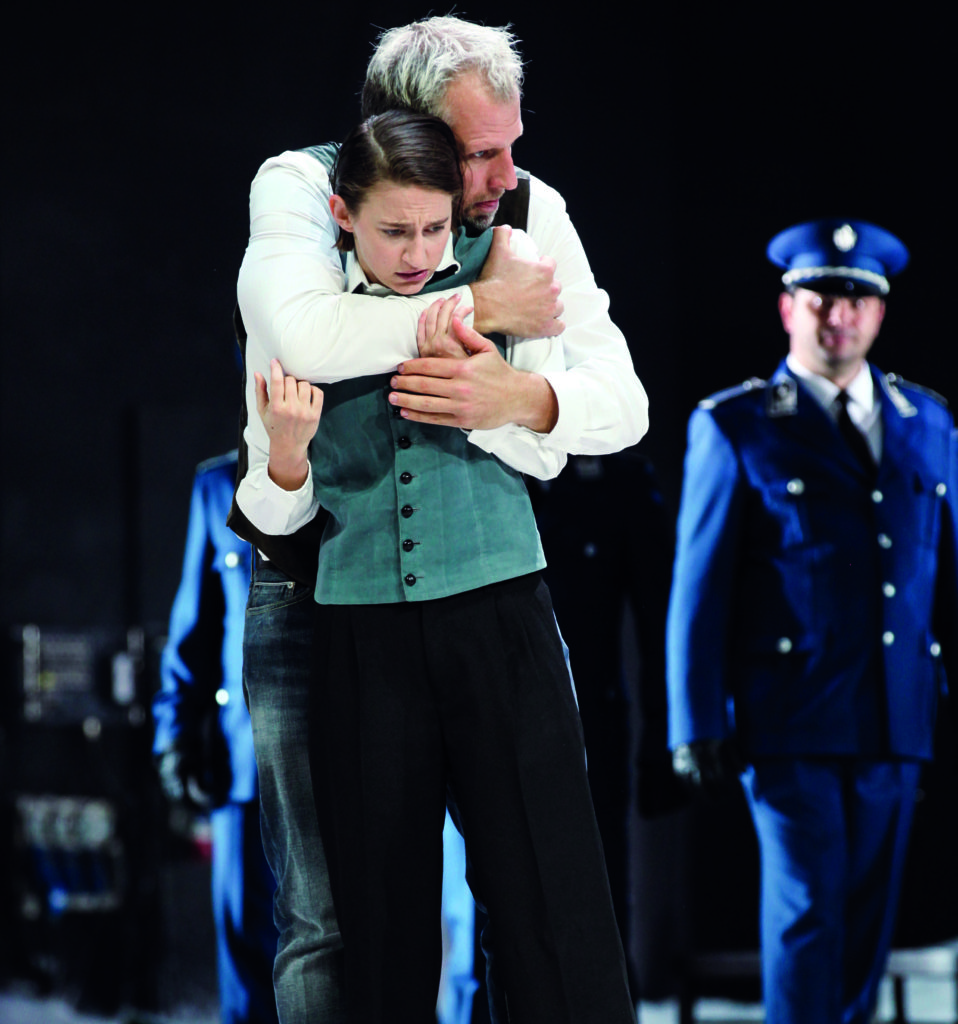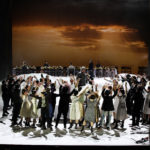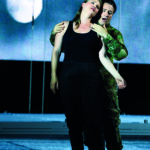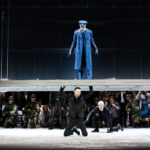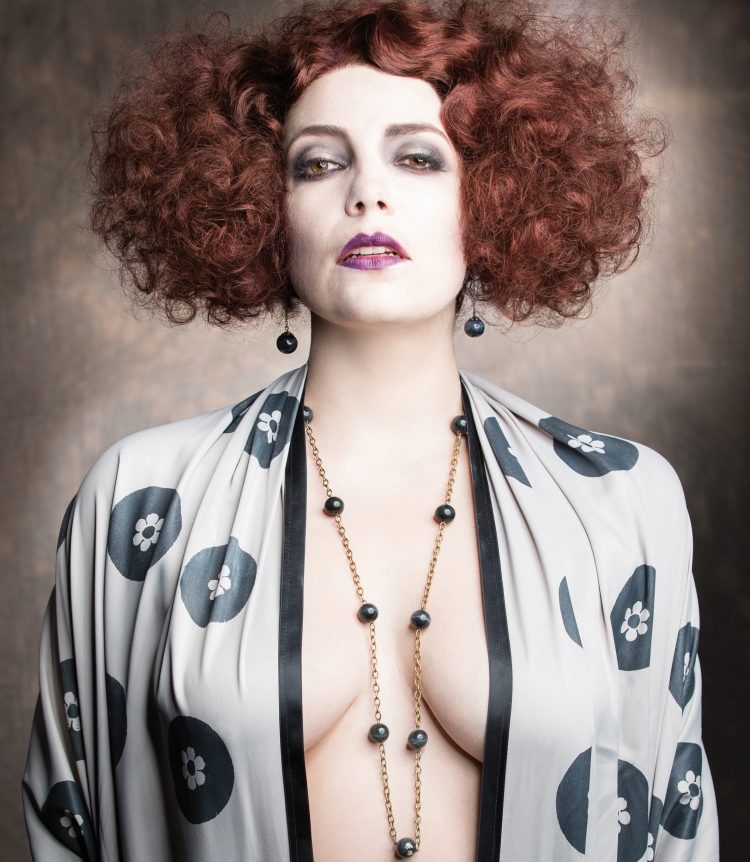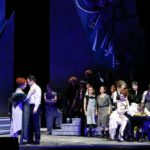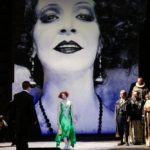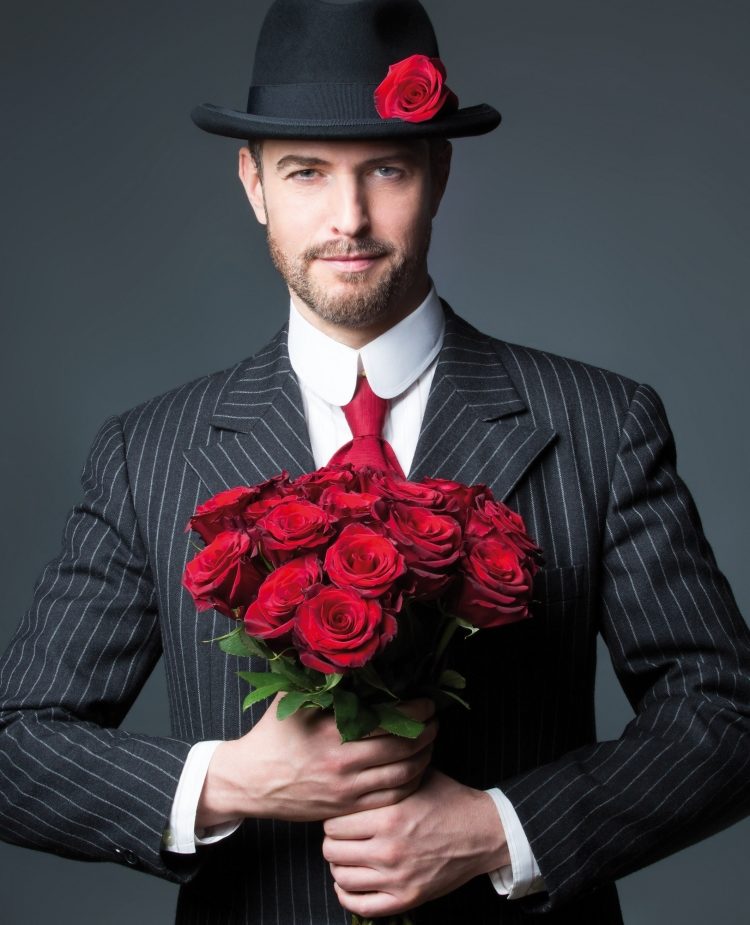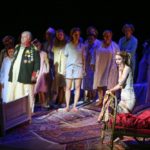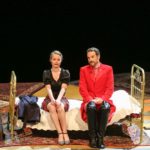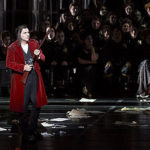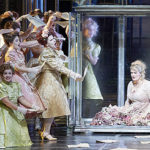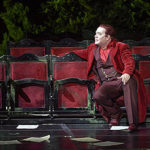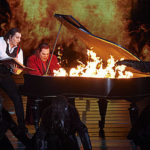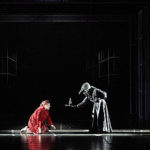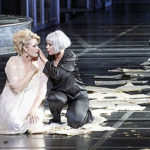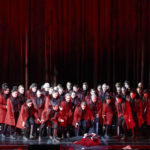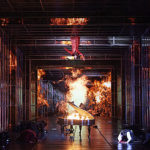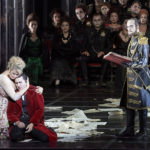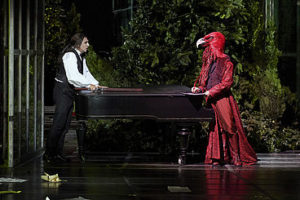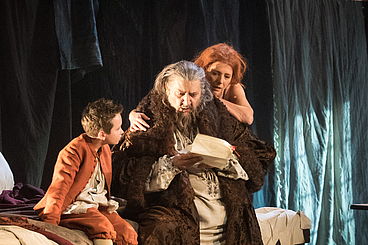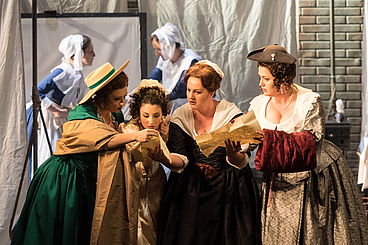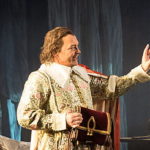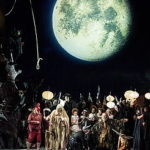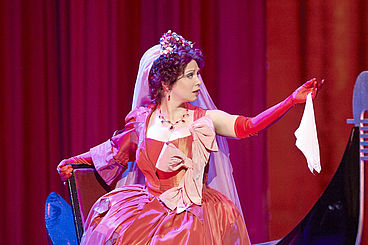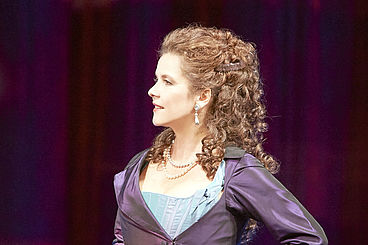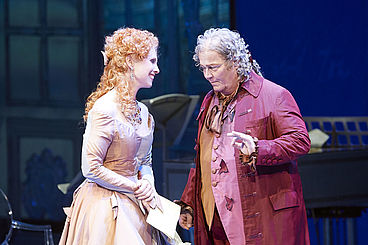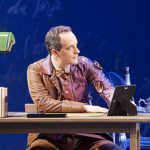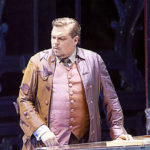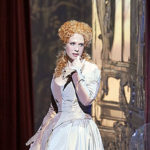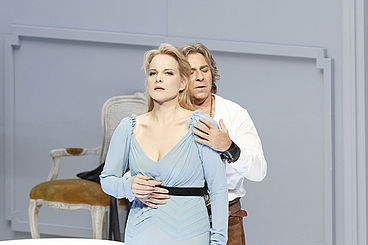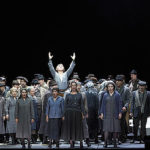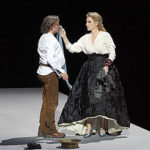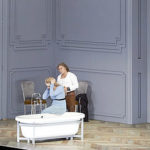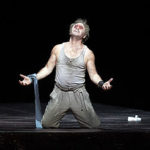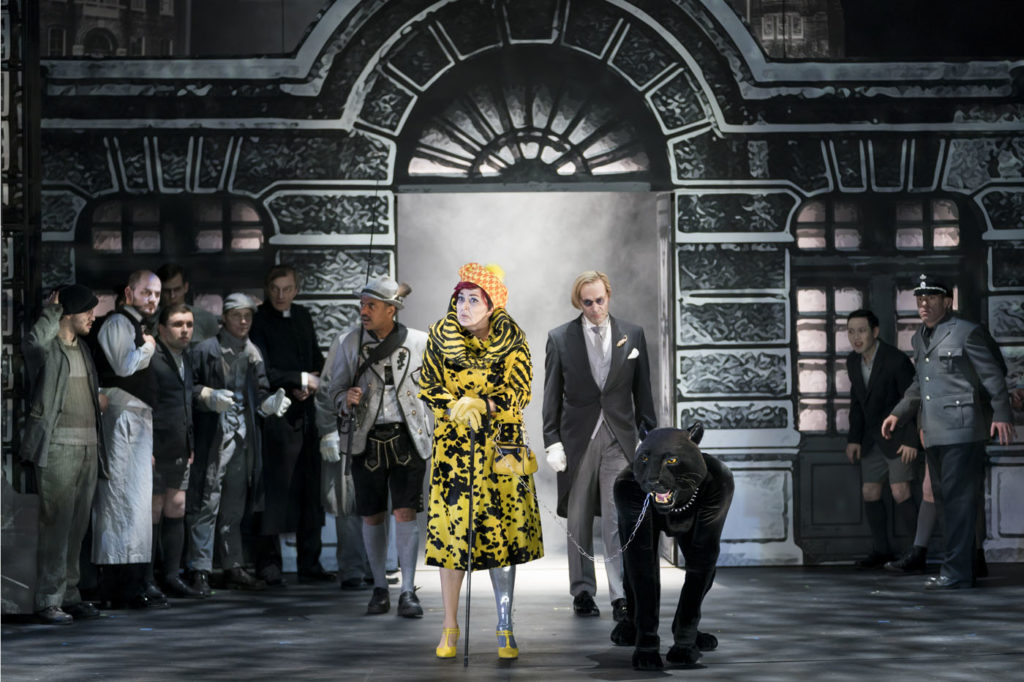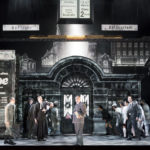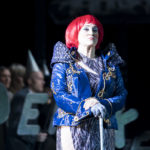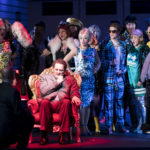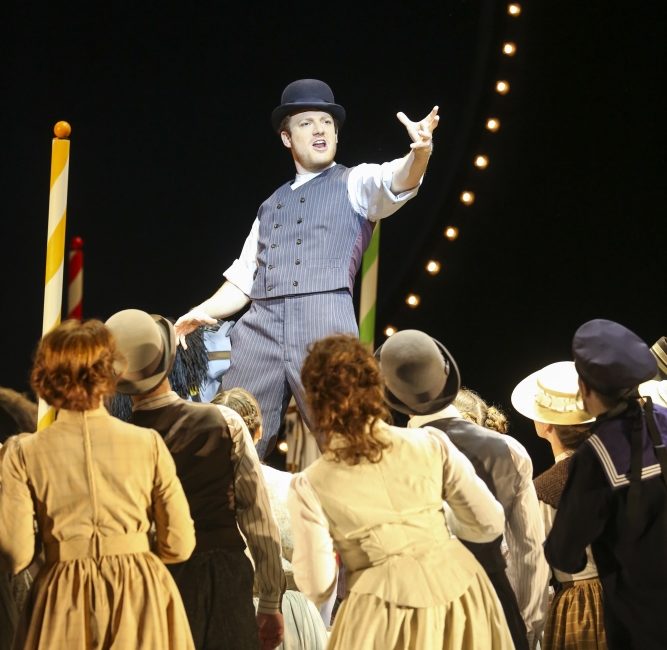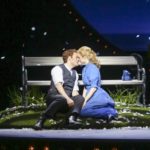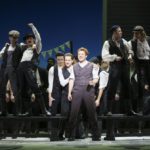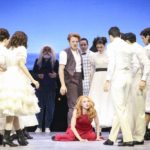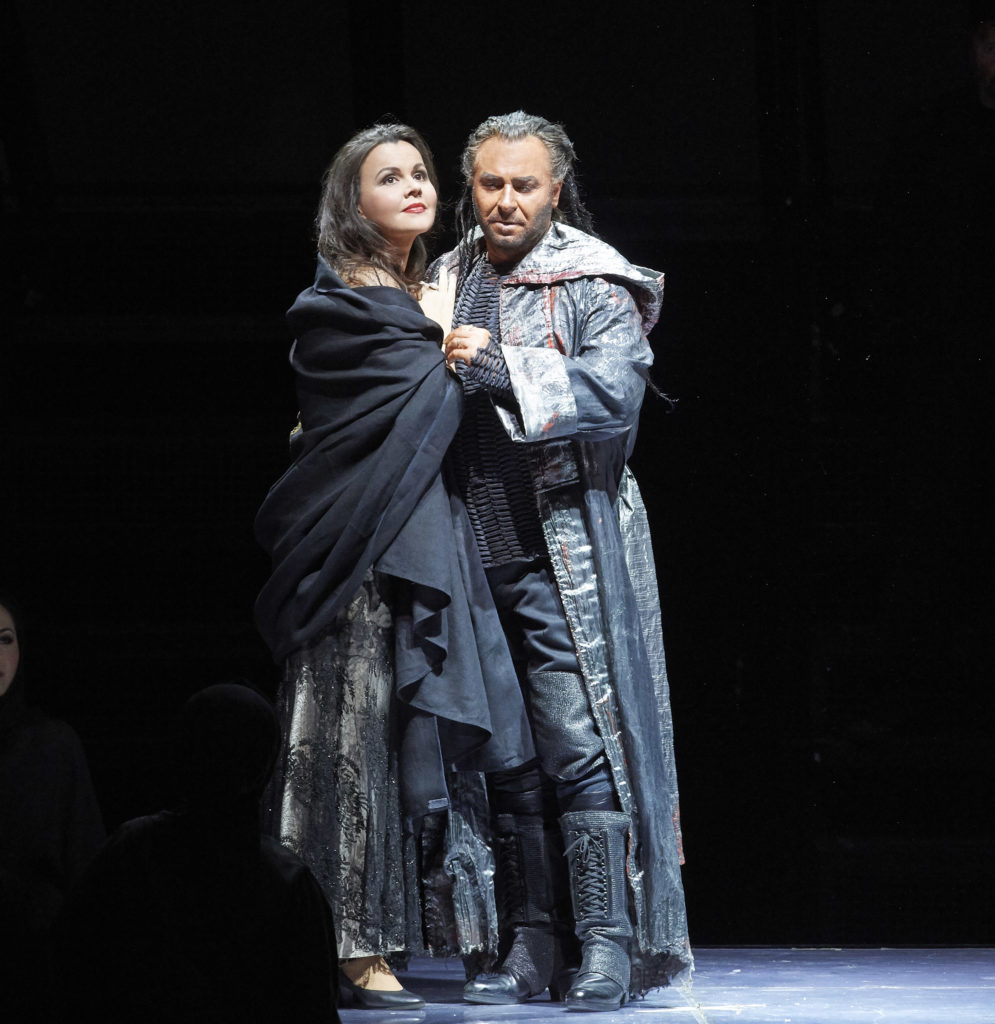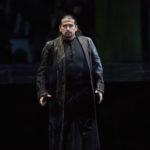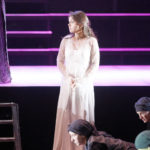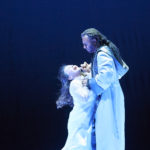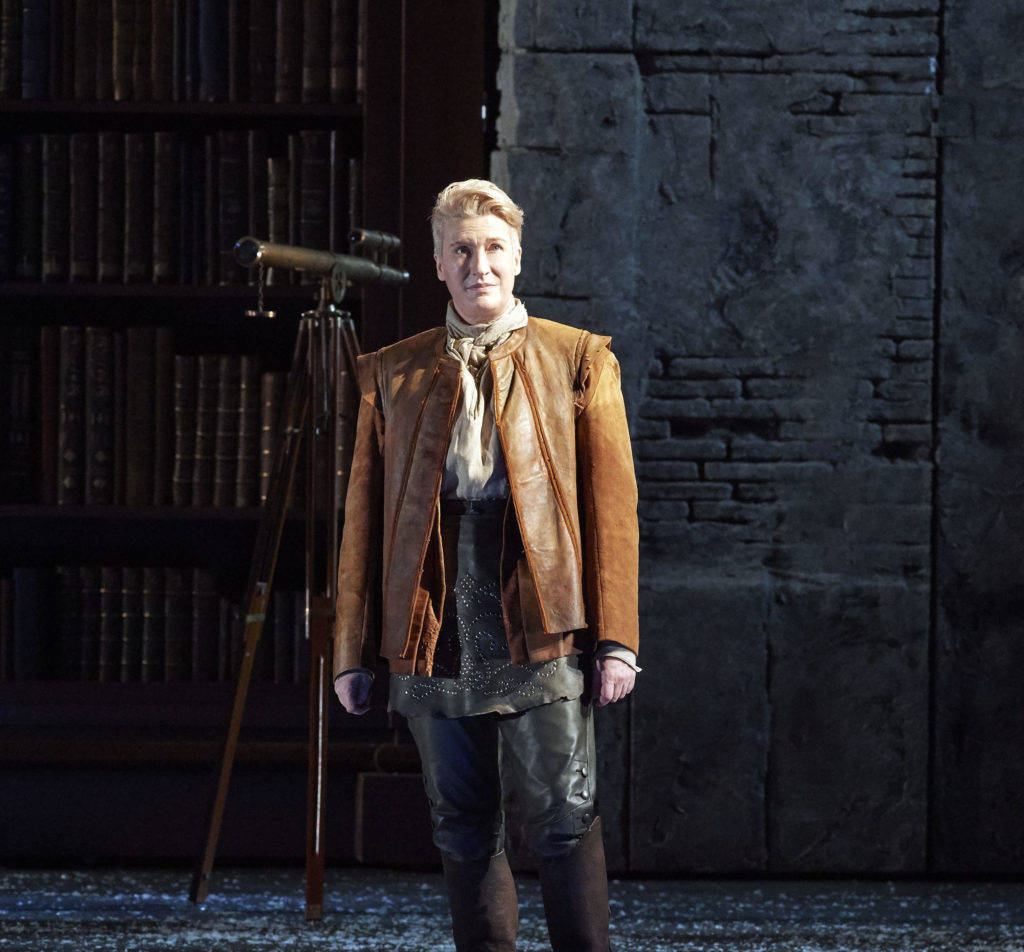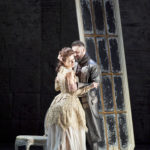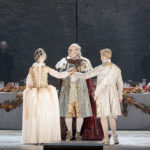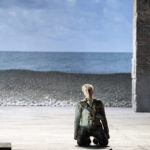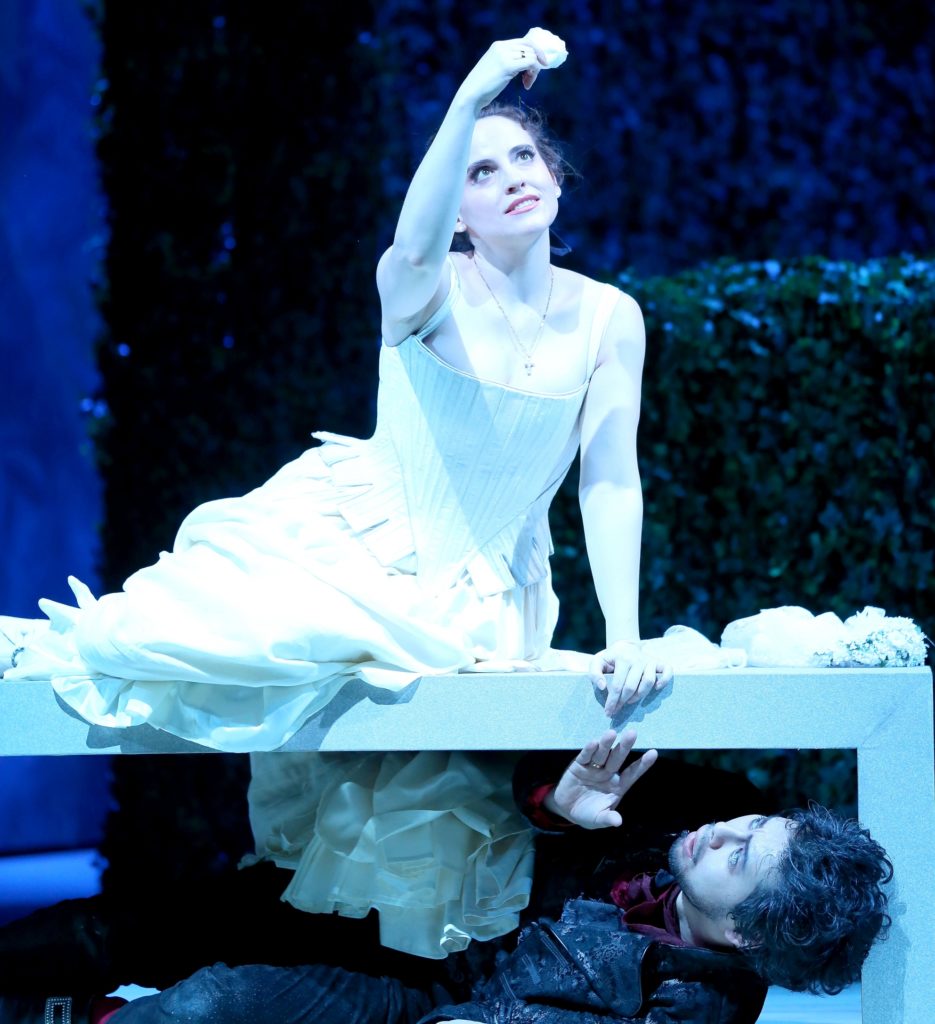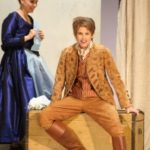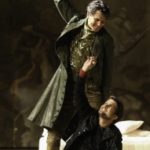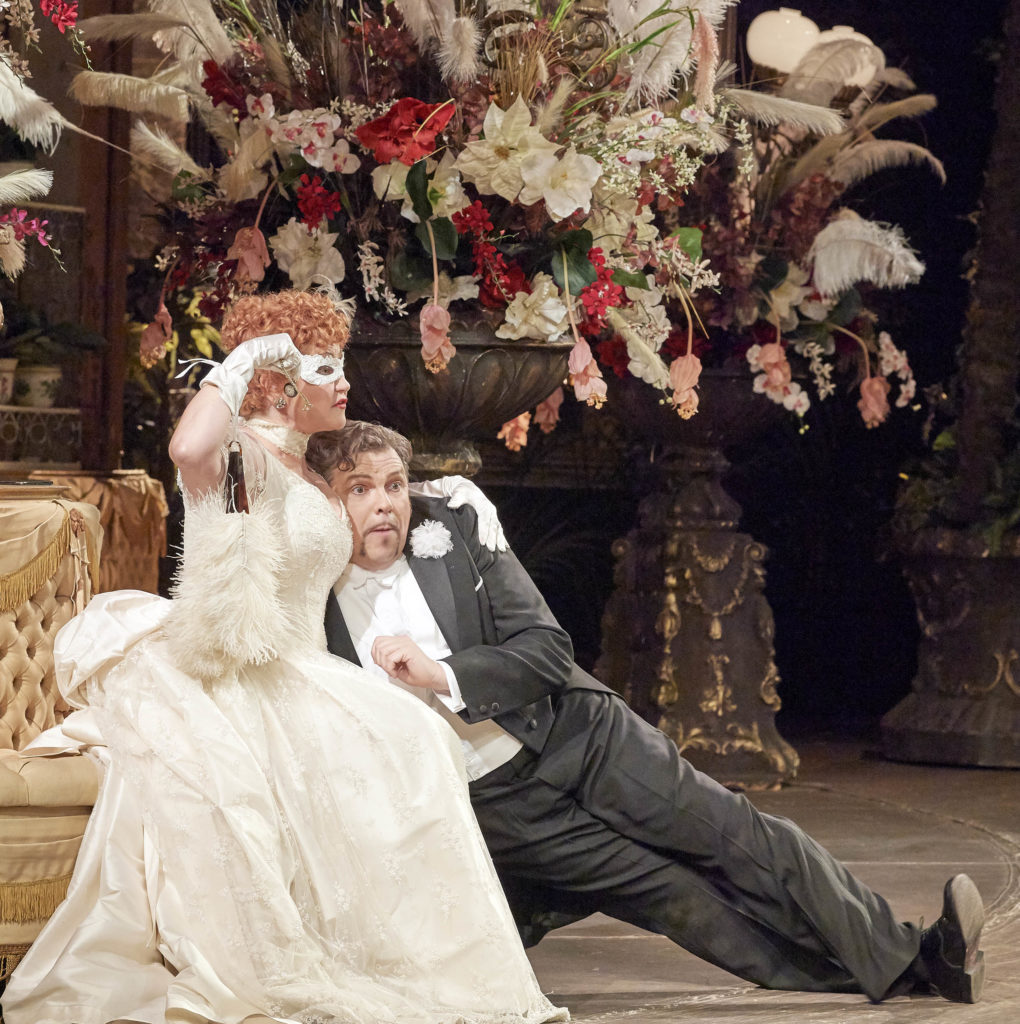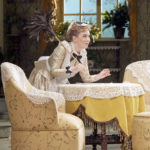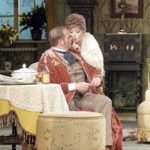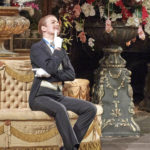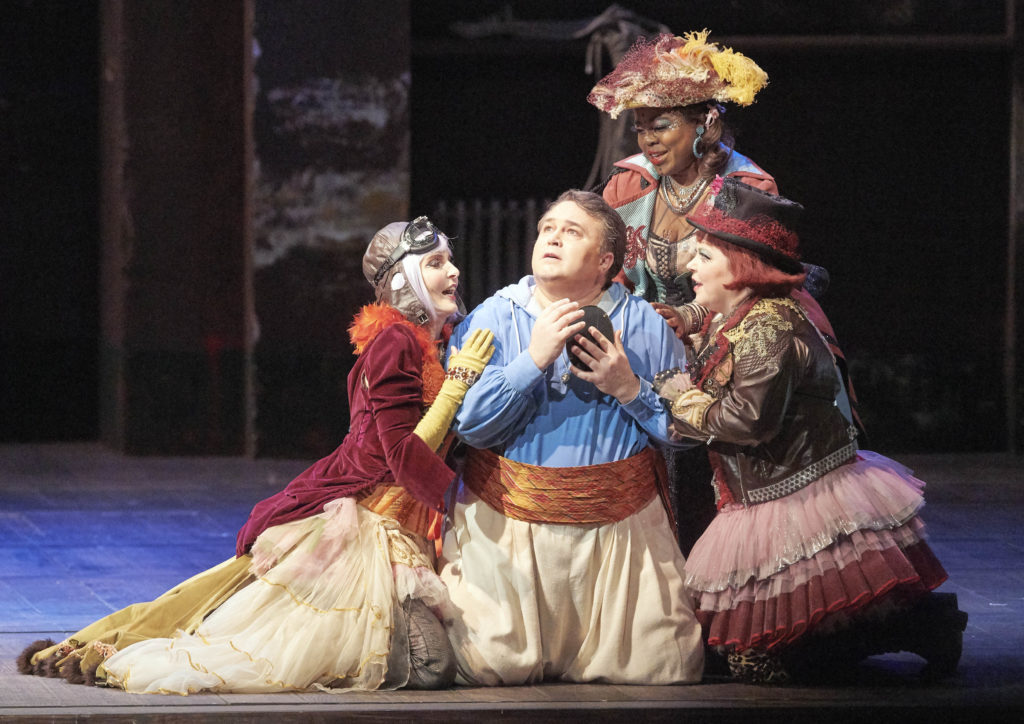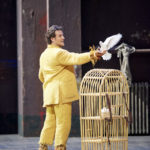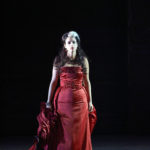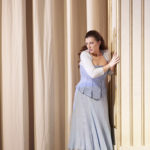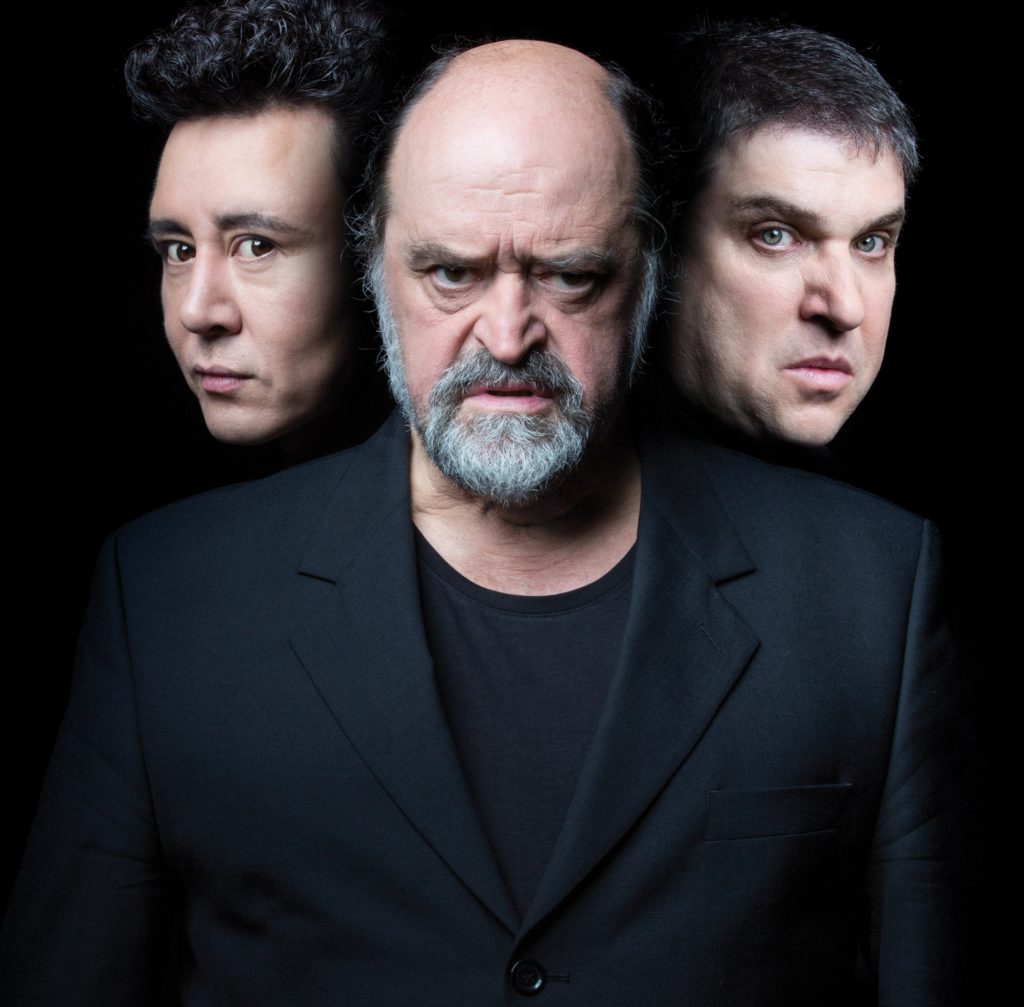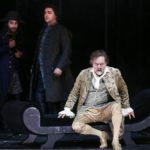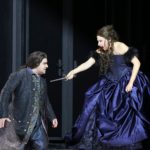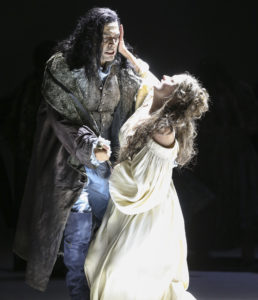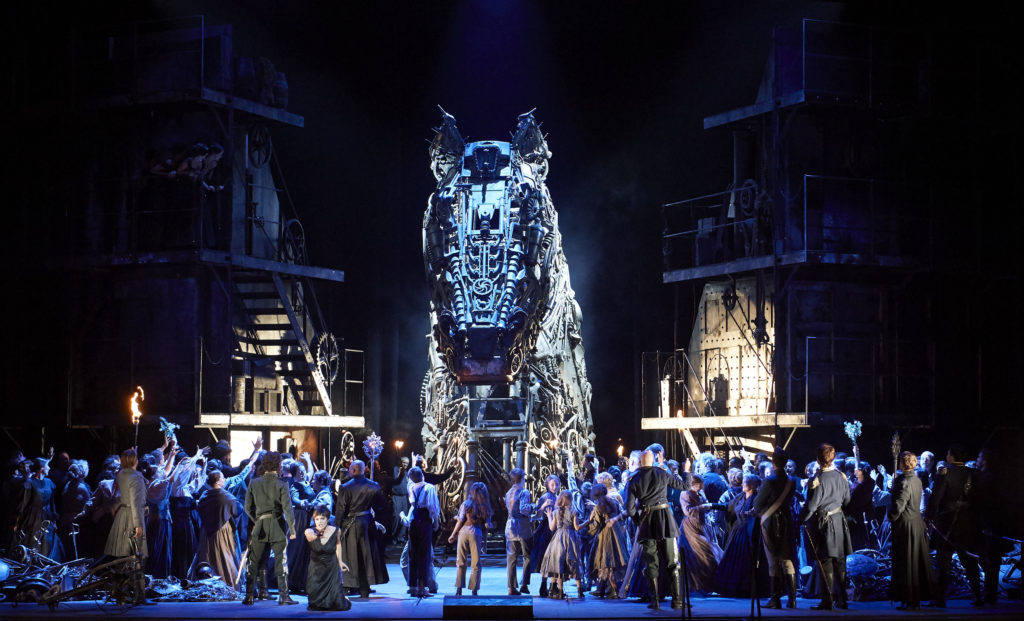 Overwhelming! Berlioz’s five-Act opera, lasting five hours, is rarely performed; only the largest opera houses can afford to put it on. This complete Vienna State Opera production (directed by David McVicar) is the first since 1976. Les Troyens premiered in Paris 1863, but only the second part, the love scenes in Queen Dido’s Carthage, where Aeneas’s fighters find refuge. It seems an opera of two halves, but the first two Acts – the destruction of Troy- are dramatically essential. Berlioz was obsessed with Virgil’s Aeneid and it is Aeneas (Enée) whose fate unites Les Troyens.
Overwhelming! Berlioz’s five-Act opera, lasting five hours, is rarely performed; only the largest opera houses can afford to put it on. This complete Vienna State Opera production (directed by David McVicar) is the first since 1976. Les Troyens premiered in Paris 1863, but only the second part, the love scenes in Queen Dido’s Carthage, where Aeneas’s fighters find refuge. It seems an opera of two halves, but the first two Acts – the destruction of Troy- are dramatically essential. Berlioz was obsessed with Virgil’s Aeneid and it is Aeneas (Enée) whose fate unites Les Troyens.
This McVicar production (stage Es Devlin) is visually stunning, especially the set for Troy. This is meant as spectacle, the Troy legend – the founding of Italy, even the line of French monarchy- equal to the Ring of the Nibelung. The stage is on four levels, concentric galleries of social classes – soldiers, civic dignitaries, women – overlooking the crowd below. There’s a pile of scrap metal left-of-stage, the war booty; and, importantly, center, a platform showing the Trojan gods in miniature, lit by an eternal flame, the gods playing a crucial role in human lives.
So Casandra plays a central role, her prophesies of foreboding powerfully sung and enacted by soprano Anna Caterina Antonacci. She sings of Priam as ‘ill-fated King’, and she foresees the danger of the Iron Horse, left by the Greeks as a gift to placate the Trojan’s gods. To a wailing clarinet solo, Save your bitter tears: you will need them for the impending disaster. She sings of the soldiers disappeared; the Trojan Priest killed by serpents from the ruins; le peuple condamné, the people are condemned. Gloire ma Patrie . She laments for her country. Meanwhile children are playing, people dancing in circles, celebrating the peace.
Yet the Horse – dominating the stage – is fearsome, consisting of wheels and cogs, an amalgam of scrap metals welded together. It is something out of a horror movie: it turns on its side, is self-propelled, and apparently empty. It’s moved to the back of the stage, with the people guarding it with torches of fire.
A bloodied figure, the spectre of Hector (Anthony Schneider) staggers on, opening Act 2, singing a lament to the Glory of Troy O Gloire des Troyens. He accosts, hugs, the grey-suited Aeneas, Brandon Jovanovich. 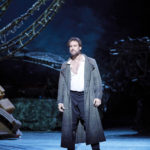 Jovanovich’s refined tenor is ‘heroic’ for these first two Acts, declamatory, urging his fellow Trojans into battle; then lyrical and smoother in the Carthage love duets. Hector reminds him of his pedigree, the son of Venus (the god of love, that should explain it); warning him of the enemy within, exhorting him VA CHERCHE ITALIE! (to find Italy.) Enée is now kneeling, white shirt blood-covered. We will defend our land! Jovanovich, addresses the Trojans, bearded in his grey coat, like a revolutionary leader.
Jovanovich’s refined tenor is ‘heroic’ for these first two Acts, declamatory, urging his fellow Trojans into battle; then lyrical and smoother in the Carthage love duets. Hector reminds him of his pedigree, the son of Venus (the god of love, that should explain it); warning him of the enemy within, exhorting him VA CHERCHE ITALIE! (to find Italy.) Enée is now kneeling, white shirt blood-covered. We will defend our land! Jovanovich, addresses the Trojans, bearded in his grey coat, like a revolutionary leader.
Cassandre calls on Cybèle, mother of the wretched, the stage now filled with women in black, some war-widows in mourning. Help your Trojan men at this terrible time! Soon they’ll be on their way to Italy, the home of the new Troy. She urges these wives and virgins not to submit to the enemy. They, these women in black shrouds, will share her fate. The Greeks, in burgundy and gold uniforms, demand the Trojan treasure. Women, armed with knives, commit suicide, huddled together, surrounding Cassandre, dying as if in a religious sect. This is the nightmare that Aeneas and his Trojan followers will carry with them on their sea voyage.
The opening of Act 3 in Carthage couldn’t be more different, the brilliantly lit stage celebrating Carthage’s festival. Very exotic staging with terracotta castle walls, oriental princes peering out. This is the back-story to Aeneas’s arrival in Carthage, but also a psychological key to Aeneas’s conflicted motives, torn between love and duty.
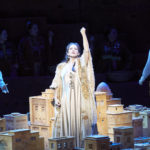 Gloire a Didon, they sing. There’s a model of a miniature Carthage centre-stage. Joyce DiDonato’s Didon wears a glamorous beige silk gown, her long brown hair shoulder-length. In her aria Sept ans she sings< it's barely seven years since they fled from Tyre (modern-day Syria). So the Carthageans are themselves refugees. Carthage is prospering. Such endeavour fills her with pride. DiDonato invokes La voix sublime des dieux , but her own mezzo-soprano is just that, sublime and heavenly. Dear Tyreans, she addresses them. She’s at the centre of this model city. Carthage, prospering, is an image of abundant joy. They want to ‘ensnare her’ in marriage, but her sense of duty comes first.
Gloire a Didon, they sing. There’s a model of a miniature Carthage centre-stage. Joyce DiDonato’s Didon wears a glamorous beige silk gown, her long brown hair shoulder-length. In her aria Sept ans she sings< it's barely seven years since they fled from Tyre (modern-day Syria). So the Carthageans are themselves refugees. Carthage is prospering. Such endeavour fills her with pride. DiDonato invokes La voix sublime des dieux , but her own mezzo-soprano is just that, sublime and heavenly. Dear Tyreans, she addresses them. She’s at the centre of this model city. Carthage, prospering, is an image of abundant joy. They want to ‘ensnare her’ in marriage, but her sense of duty comes first.
Girls- blonde-haired- carry wheat-sheaves, celebrating fertility, in honour of Ceres, goddess of self-sufficiency. Hitherto Didon projects a figure of calm authority; with Les chants joyeux -the joyful chorus- she’s found peace and serenity again. But she sings of a strange feeling, an oppressive worry. Her sister Anna, the beautiful Margarita Gritskova, mezzo exquisitely sung, thinks Didon too young and beautiful to renounce love. Yet Didon, recently widowed, struggles between confused hope and an inexplicable fear.
With the arrival of the Trojans, it is Hector’s son who requests a few days’ shelter. Aeneas is celebrated as a hero: all Carthage are talking about him. Her gates are open: Permettez aux Troyens! Dido sings of wandering the seas. Has she not also been a fugitive, so she can feel compassion. DiDonato sees the contemporary relevance: ‘It’s about a people who have to flee their home and seek asylum -it’s about refugees.'(program interview.) Aeneas sings, others will teach you to be happy. (The Trojans pledge to march against the invaders attacking Carthage )
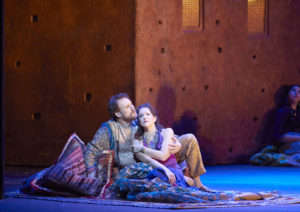
The castle walls and a huge African-mosaic construct are the background (Act 4) for near-naked young dancers approaching from the beach- Vienna State Ballet’s Academy – erotic and sensuousness. Then men carrying torches sing out ITALIE, ITALIE! The dancers are a foreplay for the seduction of Didon; the torchbearers a reminder of Aeneas’s duty.
The duet Nuits d’ivresse -intoxicating night of pleasure – is, of course, a highlight. DiDonato, still the guilty widow, will give her heart, but holds back. The passion builds up inexorably. Repeatedly singing- on such a night – of fabled examples of seduction: including Troilus’s wooing Cressida. (But Troilus -Berlioz knew- leaves Cressida.) D’exstase infin…nuits d’ivresse.
DiDonatio puts on the breaks, when she hears of the fate of Andromaque, (Hector’s widow) who’s married Pyrrus. Such a shame, Andromaque marrying her father’s killer. But everything contrives to ease her conscience, and her seduction. Night draws its veil(La nuit étend son voile.)
Act 5 is the high point, the tragic climax of the opera. It begins with a wonderful aria O valon sonore , the bosun Hilas’s (Benjamin Bruns) lament for home, his mother’s humble cottage: the message is set sail. The crew sing, Fear and duty must unbind his fetters: the Trojans’ chorus sing of terrifying omens.
Aeneas’s aria tries to justify himself. He sings of Hades deathly spectre, his sacred undertaking and the triumphant death promised him. But really preparing himself for the terrible farewell. Yet he would rather die in a shipwreck than not see her for a last time. Again he’s haunted by the ghost of Priam demanding his departure.
Didon pursues him; she can’t believe it. Not a tear of compassion. Nothing can keep you? Not death, or shame? If she he had a show of tenderness, of his faithfulness, she’d feel less abandoned.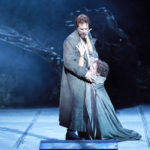
DiDonato is in a dull grey , hair seemingly shorter, looks harrowed, gaunt. Didon losing her mind, DiDonato’s intensity is shocking. Go to my sister and beg him She’s lost her pride, his departure killing her. He loves me, she sings, but his heart is made of ice. Je connais l’amour. How can he forget all she’s done for him. DiDonato is crumpled up, sitting front-of-stage. She kneels, subjugated.
Now mad with rage, she sings she’s seen their treachery, and will set their ships on fire. She summons the gods of vengeance to prepare a funeral pyre for his and her gifts. She will die in terrible pain. Adieu fière cité. Farewell beautiful shores of Africa. Ma carière est fin. She exits.
The high priest (Jongmin Park) curses Aeneas to a terrible fate. Hannibal will avenge her. Didonato is accompanied to the funeral pyre, her voice thin, as from the grave. Carthage will perish, sing multiple choirs- Vienna State Opera’s, Slovak Philharmonic- unleashing enormous power. Conducted by Alain Altinoglu, Vienna State Opera Orchestra, revealed every note of Berlioz’s masterfully subtle score. Overlong at five hours? Then so are Wagner’s epics, Berlioz’s Trojans equally a masterpiece of 19th century opera. © PR 26.10.2018
Photos: Brandon Jovanovich (Enée); Joyce DiDonato (Didon); Brandon Jovanovich (Enée) and Joyce DiDonato (Didon); Joyce DiDonato and Brandon Jovanovich
© Wiener Staatsoper GmbH / Michael Pöhn

